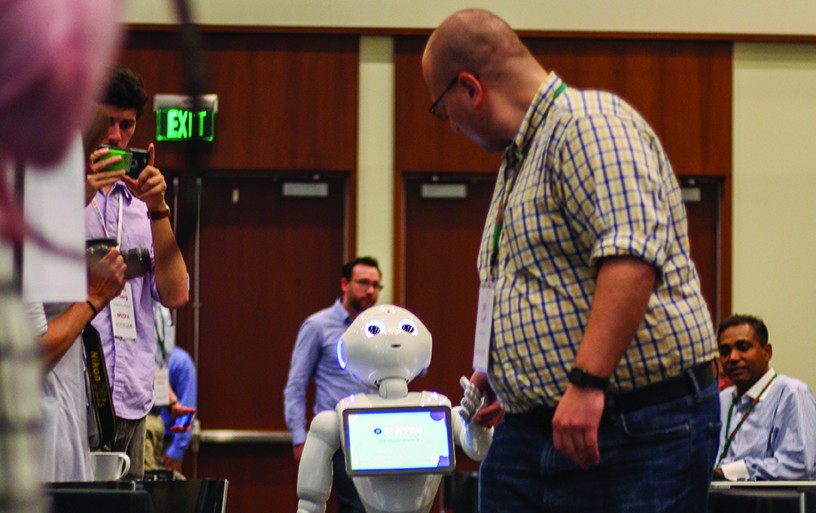
Professors and engineers flew in from all over the world for the fifth annual We Robot conference. The conference on legal and policy issues relating to robotics was organized by the UM School of Law on Friday and Saturday at the Newman Alumni Center.
A host of robotics experts attended the conference, including a team from the Parisian branch of Aldebaran Robotics, a manufacturer of “humanoid” or human-like robots, including the first personal emotional robot, called “Pepper.”
The three-foot-tall android can be used in department stores to help locate items and greet people. Pepper has the ability to detect the emotion, age and gender of the person with whom it is interacting. Bill Loft from Aldebaran approximated that the robot will be commercially available in the near future for about $20,000, but Aldebaran has not released an official statement.
Also on display was the OpenROV aquatic robot, used for exploring underwater environments. The $1,000 android has the ability to track fish and locate and mark ocean garbage. The robot is commonly used for underwater research as well as for educational purposes. OpenROV is currently used by the U.S. Navy for hull inspections on ships.
Fumio Shimpo, a law professor at Keio University in Japan, was in attendance and noted Japan’s ongoing effort to largely automate the 2020 Tokyo Olympics. This was part of reason he attended the conference, Shimpo said.
“We have to think about how to regulate, but also at the same time how to promote such new technology. Therefore, robotics law is the next big issue for our leading scholars,” Shimpo said.
The conference also served as the official book launch of “Robot Law,” a distillation of the most important papers from the five previous We Robot events at other universities. UM law professor Michael Froomkin, the program chair of the event and co-editor of the book, said he saw this as an important step toward the future of understanding robotic law.
“It helps explain to people that this is actually a coherent subject of study … that it makes sense to talk about robot law,” Froomkin said.
Correction, May 18, 4:54 p.m.: A correction made on this article on April 4 stated that this was the first We Robot event held at UM. This was the third time the event was held at UM.






